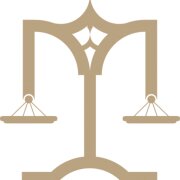Best Admiralty & Maritime Lawyers in Kano
Share your needs with us, get contacted by law firms.
Free. Takes 2 min.
List of the best lawyers in Kano, Nigeria
About Admiralty & Maritime Law in Kano, Nigeria
Admiralty and Maritime Law is a specialized legal field that governs nautical issues and private maritime disputes. Although Kano is an inland city in Nigeria, it plays a significant role in trade and commerce, which may involve maritime and shipping activities. The maritime legal system in Nigeria is governed by both domestic laws and international conventions, designed to tackle legal issues such as shipping contracts, marine navigation and commerce, sailors, transportation of passengers and goods by sea, and more.
Why You May Need a Lawyer
If you are involved in activities related to maritime trade in Kano, Nigeria, it is crucial to understand when you may need legal assistance in Admiralty & Maritime Law. Common situations include:
- Disputes over shipping contracts or agreements.
- Maritime accidents or injuries.
- Cargo claims and liabilities.
- Vessel documentation and registration issues.
- Environmental compliance related to maritime activities.
- Disputes involving maritime liens.
- Maritime insurance claims.
In such cases, having a lawyer specialized in Admiralty & Maritime Law can help protect your rights and navigate the complexities of maritime regulations.
Local Laws Overview
In Nigeria, the regulatory framework for the maritime industry includes several significant laws and regulations. The key legal instruments include:
- The Merchant Shipping Act: This act regulates the shipping industry, covering matters such as ship registration and safety standards.
- The Nigerian Maritime Administration and Safety Agency (NIMASA) Act: NIMASA is responsible for maritime regulations, ensuring safety, and enhancing shipping and maritime labor in Nigeria.
- Carriage of Goods by Sea Act: Governs the carriage of goods by sea, outlining the responsibilities and liabilities of parties involved in shipping contracts.
- International conventions: Nigeria is a signatory to several international maritime conventions which are applicable domestically.
Understanding these laws and their implications is vital for anyone engaging in maritime activities.
Frequently Asked Questions
What is Admiralty & Maritime Law?
Admiralty & Maritime Law is the body of law that governs nautical issues and marine disputes, including regulations and agreements specific to shipping and ocean activities.
Do I need a lawyer for minor shipping disputes?
While minor disputes might be resolved amicably, a lawyer can provide valuable advice to ensure that resolutions are legally sound and protect your interests.
What are the common legal issues in maritime law?
Common issues include cargo claims, vessel collisions, personal injuries, environmental regulations, and ship registration and documentation.
How does the Merchant Shipping Act affect my business?
The Merchant Shipping Act outlines legal requirements for operating vessels, including registration, safety, and labor standards, all of which impact maritime businesses.
Why is NIMASA important?
NIMASA is vital for regulating maritime safety and security, and ensures compliance with legal standards, contributing to the development of Nigeria's maritime industry.
What are international maritime conventions?
These are treaties and agreements between countries to standardize maritime laws globally, covering issues like pollution prevention, safety, and cargo.
What should I do if I have a cargo claim?
You should document the incident thoroughly and consult with a maritime lawyer to understand your rights and the legal steps you need to take.
Can environmental laws impact maritime businesses?
Yes, non-compliance with environmental laws can result in penalties and hampers your ability to operate smoothly, making awareness of such laws crucial.
How do I choose a maritime lawyer?
Look for lawyers with specific expertise in maritime and shipping law, consider their track record in similar cases, and seek recommendations from industry professionals.
Are maritime laws the same across Nigeria?
While Nigeria follows federal maritime laws, the implementation can vary slightly by region; consulting with a local legal expert can be beneficial.
Additional Resources
For further assistance, you may consider the following resources:
- Nigerian Maritime Administration and Safety Agency (NIMASA): The regulatory body for maritime issues in Nigeria.
- Nigerian Bar Association: Offers resources to find legal practitioners specializing in maritime law.
- Local maritime unions and associations: Such as the Nigerian Shippers' Council, which provides further guidance and support.
Next Steps
If you need legal assistance in Admiralty & Maritime, consider the following steps:
- Identify specific legal issues you are facing or anticipate facing.
- Research and contact maritime lawyers or law firms in Nigeria who have a strong track record in maritime law cases.
- Arrange consultations to discuss your needs, and ensure you choose a lawyer who understands both local and international maritime laws.
- Prepare all necessary documentation and information related to your case to ensure a thorough analysis by your legal team.
Taking these steps can help ensure you are adequately prepared and protected in all maritime legal endeavors in Kano, Nigeria.
Lawzana helps you find the best lawyers and law firms in Kano through a curated and pre-screened list of qualified legal professionals. Our platform offers rankings and detailed profiles of attorneys and law firms, allowing you to compare based on practice areas, including Admiralty & Maritime, experience, and client feedback.
Each profile includes a description of the firm's areas of practice, client reviews, team members and partners, year of establishment, spoken languages, office locations, contact information, social media presence, and any published articles or resources. Most firms on our platform speak English and are experienced in both local and international legal matters.
Get a quote from top-rated law firms in Kano, Nigeria — quickly, securely, and without unnecessary hassle.
Disclaimer:
The information provided on this page is for general informational purposes only and does not constitute legal advice. While we strive to ensure the accuracy and relevance of the content, legal information may change over time, and interpretations of the law can vary. You should always consult with a qualified legal professional for advice specific to your situation.
We disclaim all liability for actions taken or not taken based on the content of this page. If you believe any information is incorrect or outdated, please contact us, and we will review and update it where appropriate.










